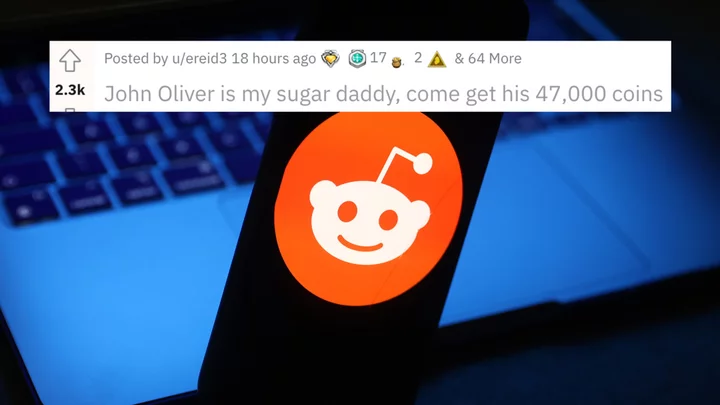In the Netflix series Everything Now, recovery from an eating disorder is anything but simple or straightforward.
The show's opening scene introduces viewers to Mia (Sophie Wilde), a 16-year-old who's just completed several months of in-patient treatment. She is eager to rejoin the world, but she's about to embark on an unpredictable journey that looks far different than most Hollywood depictions of eating disorder recovery.
Mia does not instantly triumph over her illness by relying on personal willpower. Her anorexia is not necessarily rooted in an obsessive pursuit of thinness. There are no before-and-after scenes of Mia's gaunt frame. Nor are their weigh-ins, frequent calorie counting, or graphic scenes of purging.
Hollywood has long relied on these tropes to bring stories about eating disorders to life, but they can potentially affect viewers negatively who may be vulnerable to or are already struggling with eating disorders, says Dr. Doreen Marshall, a psychologist and CEO of the National Eating Disorders Association.
SEE ALSO: Netflix's 'Everything Now' review: Put this brilliant teen show on your bucket listViewers may be influenced by disordered eating behaviors portrayed in detail. A visual focus on emaciation can have the unintended effect of shaping viewers' perception of their own appearance or result in harmful comparisons.
Everything Now avoids these mistakes. Instead, what we see is the complexity of recovery. Mia hopes to rush back into adolescence and her life prior to hospitalization, catching up with milestones her friends have reached (think sex, drugs, and drinking), only to find that her recovery is affected by how she sees herself in the world. Marshall appreciated this honesty.
"What most of us realize is that the recovery process from any mental health concern has both progress and occasional setbacks," says Marshall, who had seen the first three episodes of Everything Now when she spoke to Mashable.
The show's executive producer, Sian McWilliams, says this arc was intentional.
While lived experience with anorexia and disordered eating informed the show's script and directorial choices, McWilliams says Everything Now was intended to be raw but responsible.
"We never wanted to take a subject matter as serious and as heavy as this and just use it as a jumping off point to tell silly, kind of embarrassing teenage stories," says McWilliams.
The writing staff instead aimed to depict the realities of Mia's recovery while staying conscious of doing so without triggering viewers, or glamorizing what it's like to have an eating disorder.
To strike this delicate balance, the show's producers and writing staff consulted with psychologists, physicians, and people who live with or have recovered from an eating disorder. Consultants viewed episodes to determine when they should include a warning at the beginning, and each episode provides eating disorder resources before the credits roll.
Certain things were also off-limits. Mia, who happens to feel most comfortable in baggy clothes, is never shown at a dangerously frail or dangerous weight, nor at an idealized size meant to symbolize normality. The only physical indications of her illness are shown in brief glimpses of the toll it takes on her body otherwise, like brittle nails, dry skin, an irregular period, and patches of hair known as lanugo that the body grows as a result of severe calorie restriction.
While Mia eventually relapses as she faces tremendous stress in her personal life, restricted eating and purging are minimally suggested instead of graphically depicted.
The staff also worked with a "creative wellbeing therapist" who had clinical experience treating eating disorders but also consults with artists on transforming their real-life circumstances into stories for a broad audience. McWilliams says that therapist previously consulted on Michaela Coel's show I May Destroy You, which explored the trauma of sexual assault.
McWilliams noted that this partnership helped the staff embrace a guiding principle: A show about emotional pain can be therapeutic, but it should not be therapy for the writers themselves.
Accomplishing this meant that Everything Now writers who'd experienced an eating disorder, or loved someone who had gone through treatment, had to find distance between their feelings and the characters'.
SEE ALSO: Netflix's 'Everything Now' depicts a sexuality landscape without labelsThey were also intent on avoiding the sad-girl cliché, which can make mental illness seem glamorous. By contrast, Mia often treats her friends and family poorly, turning into a terror when she's beset by anxiety. Mia blows up precious relationships, often under the influence of alcohol, because she bottles up her emotions until they overwhelm her — and everyone else around her.
"This illness is making her really selfish and really not nice to be around," says McWilliams. "There's nothing glamorous about that. It's not something to aspire to."
But viewers also understand some of what's happening in Mia's head thanks to well-written voiceover. Marshall felt the narrative device artfully helped communicate the "mental load" often experienced by those with eating disorders.
She notes that there's often an overemphasis on the physical aspects of eating disorders without recognition that they are also mental health conditions.
Viewers, for instance, hear Mia's internal dialogue when attempting to eat, try on new clothes, or disrobe in a communal changing room. None of her thoughts point to a single factor driving her disordered eating but instead a constellation of pressures and anxieties.
"Can't they feel it? How stressful it is to just have a body?" Mia thinks as she watches other women change. "That's why I tried to shrink, to become invisible, but the thing about anorexia is it doesn't make you disappear. It turns your body into something people stare at."
For more Social Good stories in your inbox, sign up for Mashable's Top Stories newsletter today.
Marshall says that her only criticism of the show so far is that she hopes treatment is ultimately portrayed as effective. The initial episodes depict Mia as skeptical of therapy, and perhaps unwilling to continue doing the work required to recover because she wants to feel normal again.
As Mia's distress escalates in the final two episodes, it does test the show's responsible approach. Yet Mia's story does not suddenly become a tragedy, like the controversial plot twist in the Netflix series 13 Reasons Why that led to the main character's death by suicide.
Mia does lose someone close to her recovery, which could give viewers the impression that treatment isn't effective. McWilliams says the show's staff didn't make that decision lightly, but they felt it was important to show that the illness can be fatal. In that light, recovery is challenging but vitally necessary.
The loss becomes a catalyst for Mia to confront what she's been avoiding all along: her feelings. It's Mia's therapist who helps her process this revelation, showing her that recovery is still possible.
Marshall says it's critical to help youth with an eating disorder understand that they shouldn't struggle with damaging thoughts and feelings alone, because help is available.
"Illness tends to thrive in isolation," she says. "So if your brain is telling you things, [it's important] to bring that out into the light, to not keep that hidden."
Mia finally triumphs when she can do exactly that. One of her first subsequent victories is a mundane moment that runs counter to every convention of Hollywood storytelling but is nonetheless memorably powerful, making Everything Now worth watching to the very end.
If you feel like you’d like to talk to someone about your eating behavior, text "NEDA" to the Crisis Text Line at 741-741 to be connected with a trained volunteer or visit the National Eating Disorder Association website for more information.









